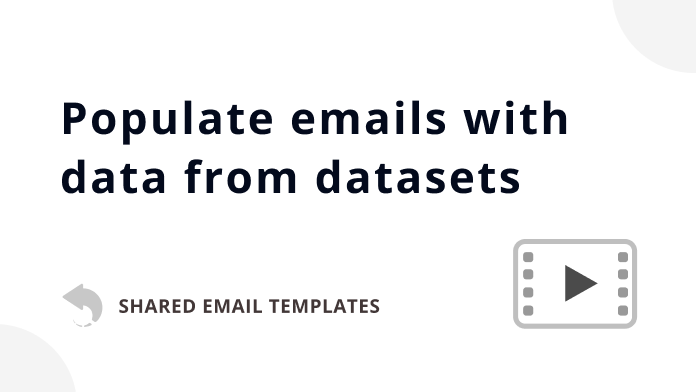
By watching this video, you'll find out how to get dataset values inserted into your email messages automatically and interactively.
If you have tables with data that you need for your email templates, you can create and use datasets.
To open a quick Datasets cheat sheet, click the button below.

By watching this video, you'll find out how to get dataset values inserted into your email messages automatically and interactively.
You can either create a dataset right in Shared Email Templates (TXT and CSV files import is supported) or connect an Excel table that you already have on OneDrive or in SharePoint.
Note. The maximum size of a simple dataset is 32 rows, 32 columns, and 512 symbols in each cell.
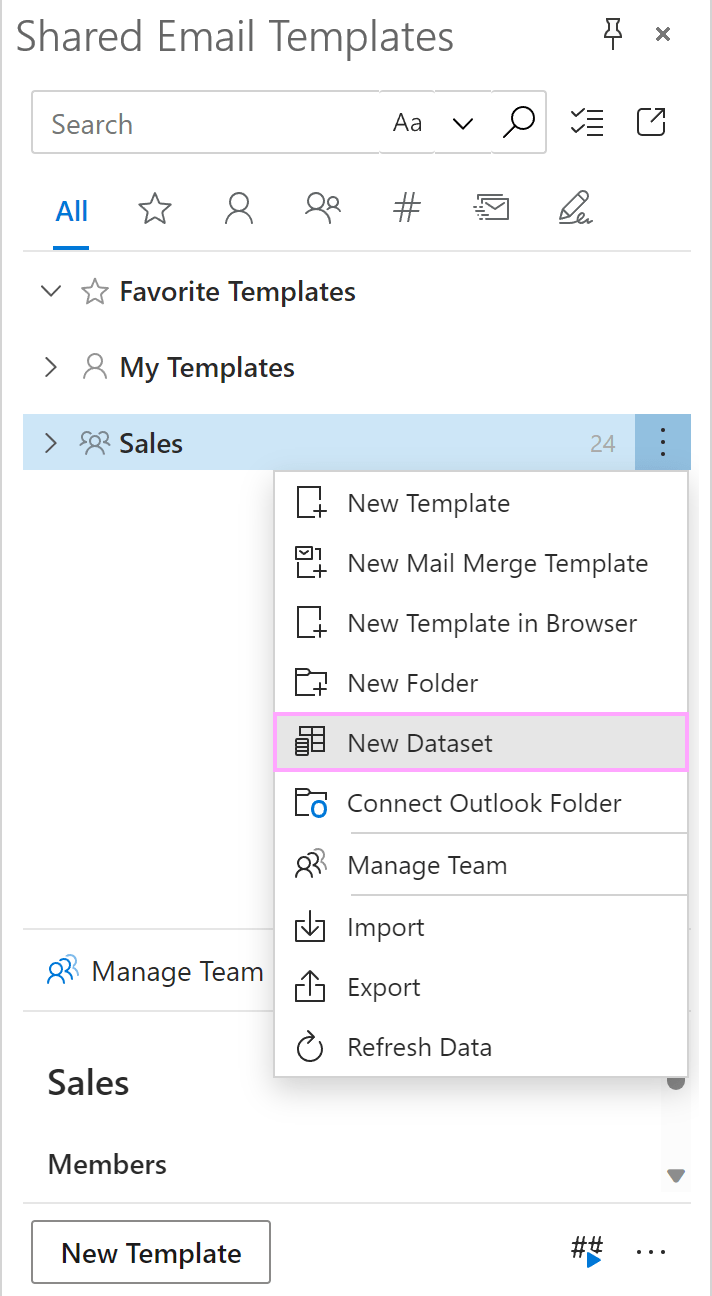
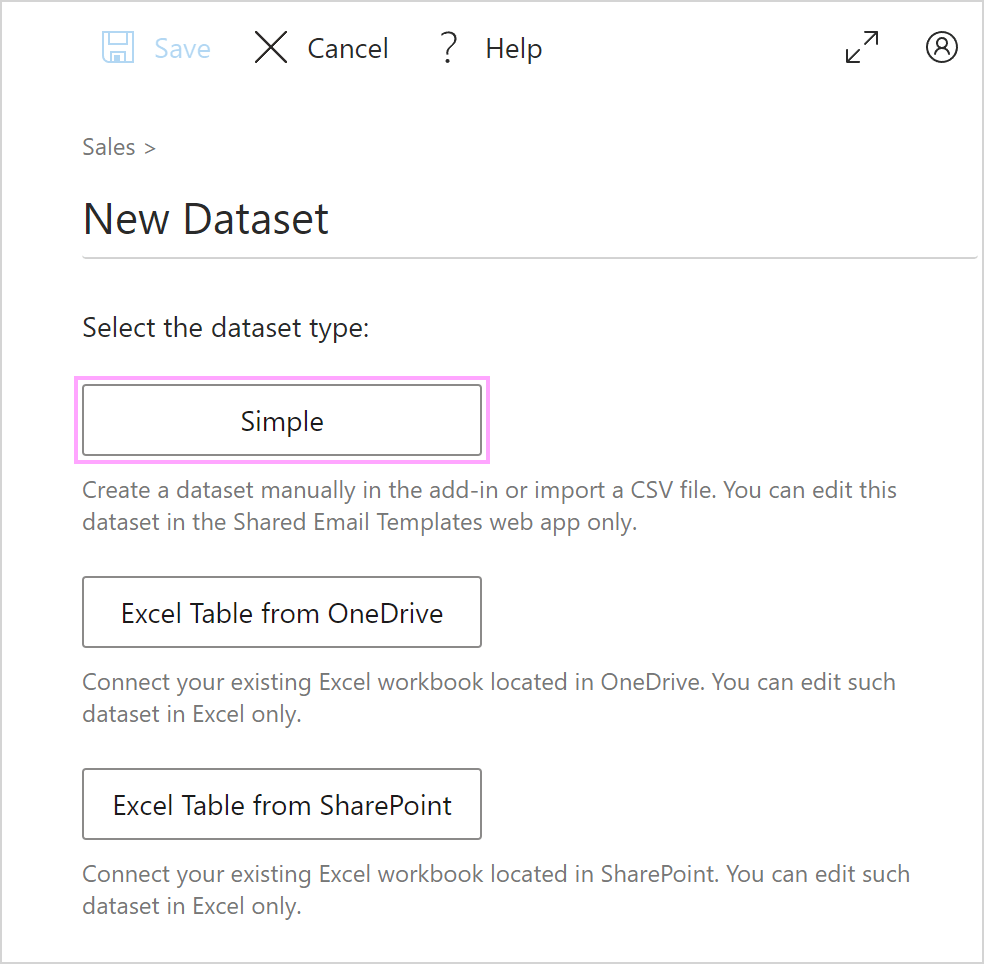
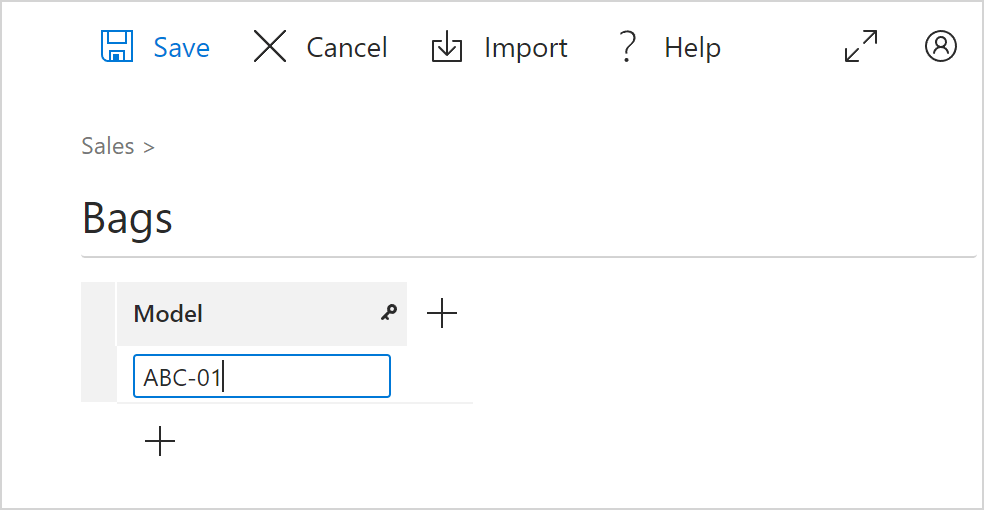
Note. The leftmost column of your dataset is the key column.
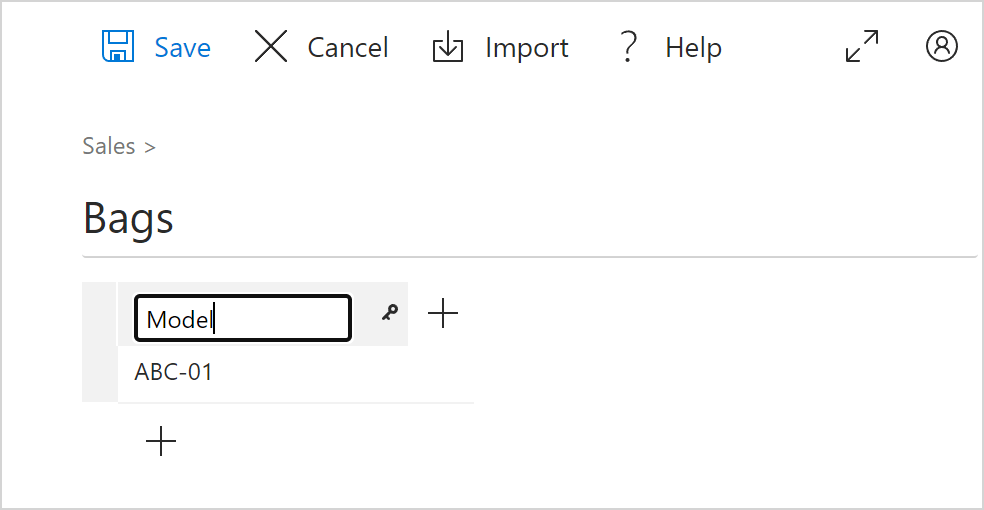
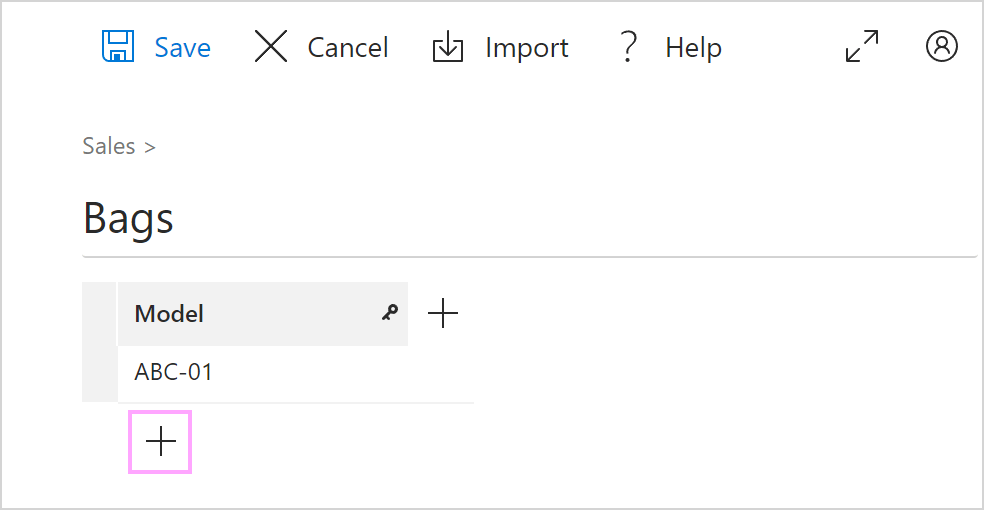
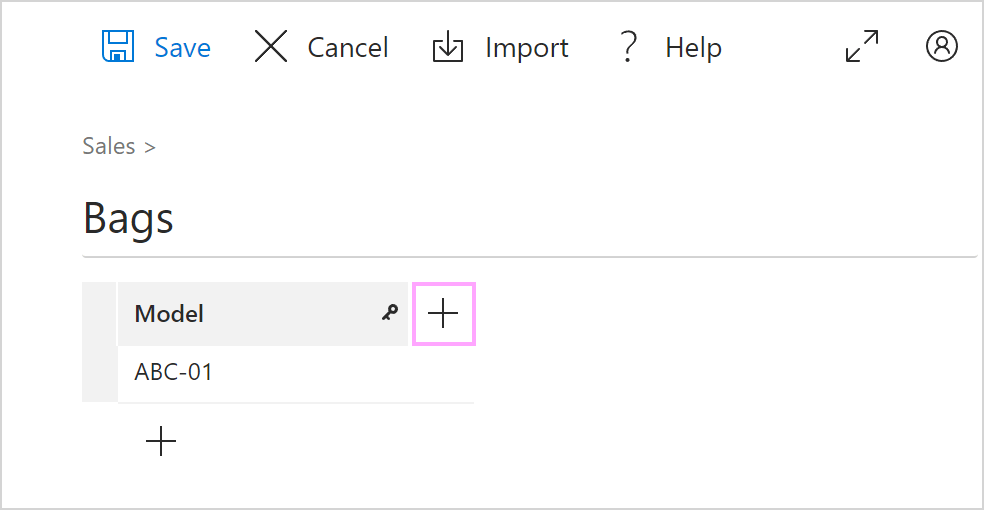
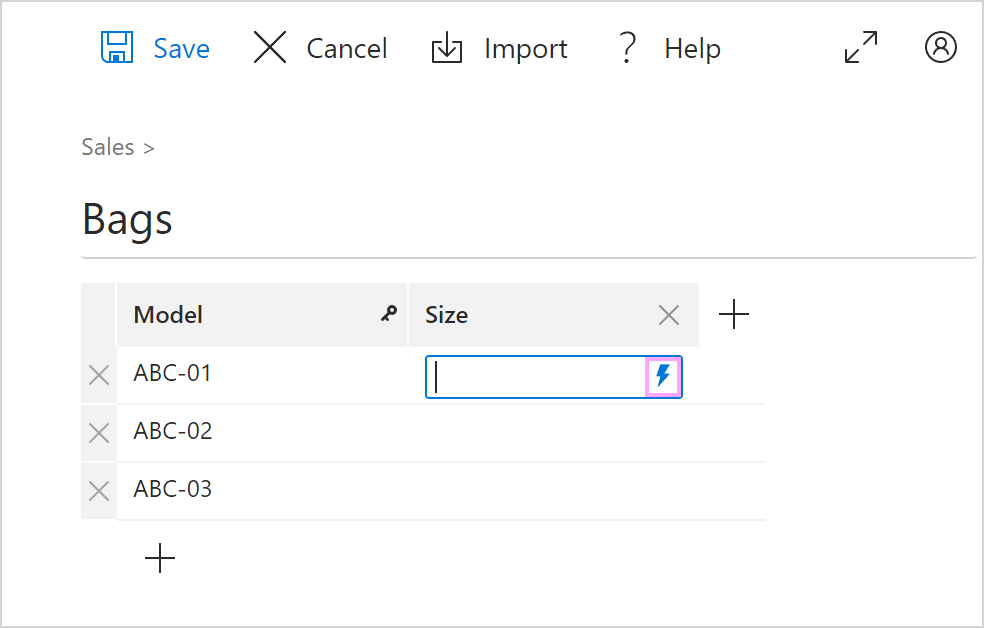
Tip. You can enter a piece of HTML code into a cell if you want to.
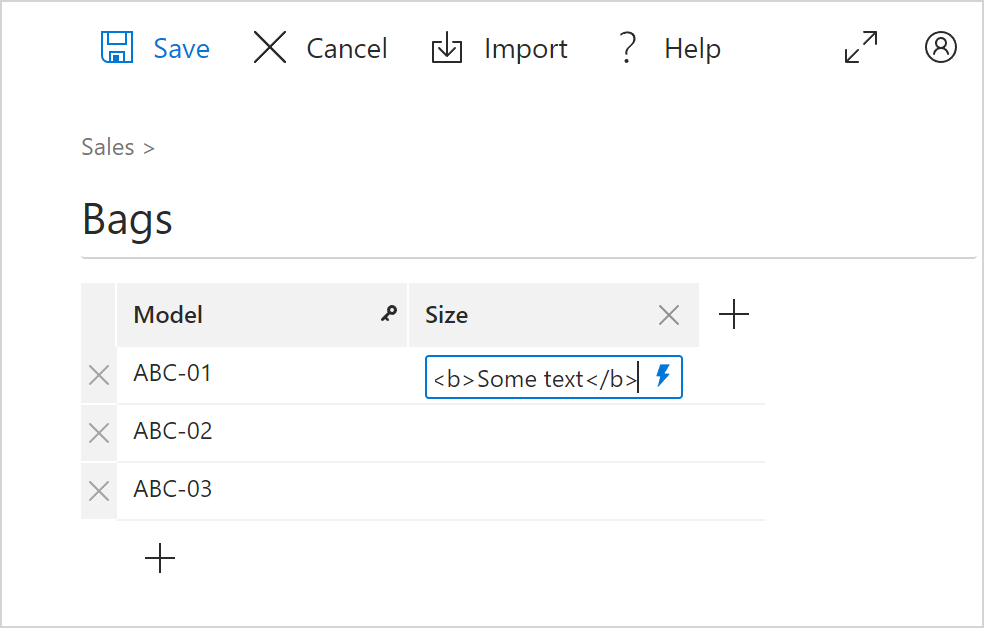
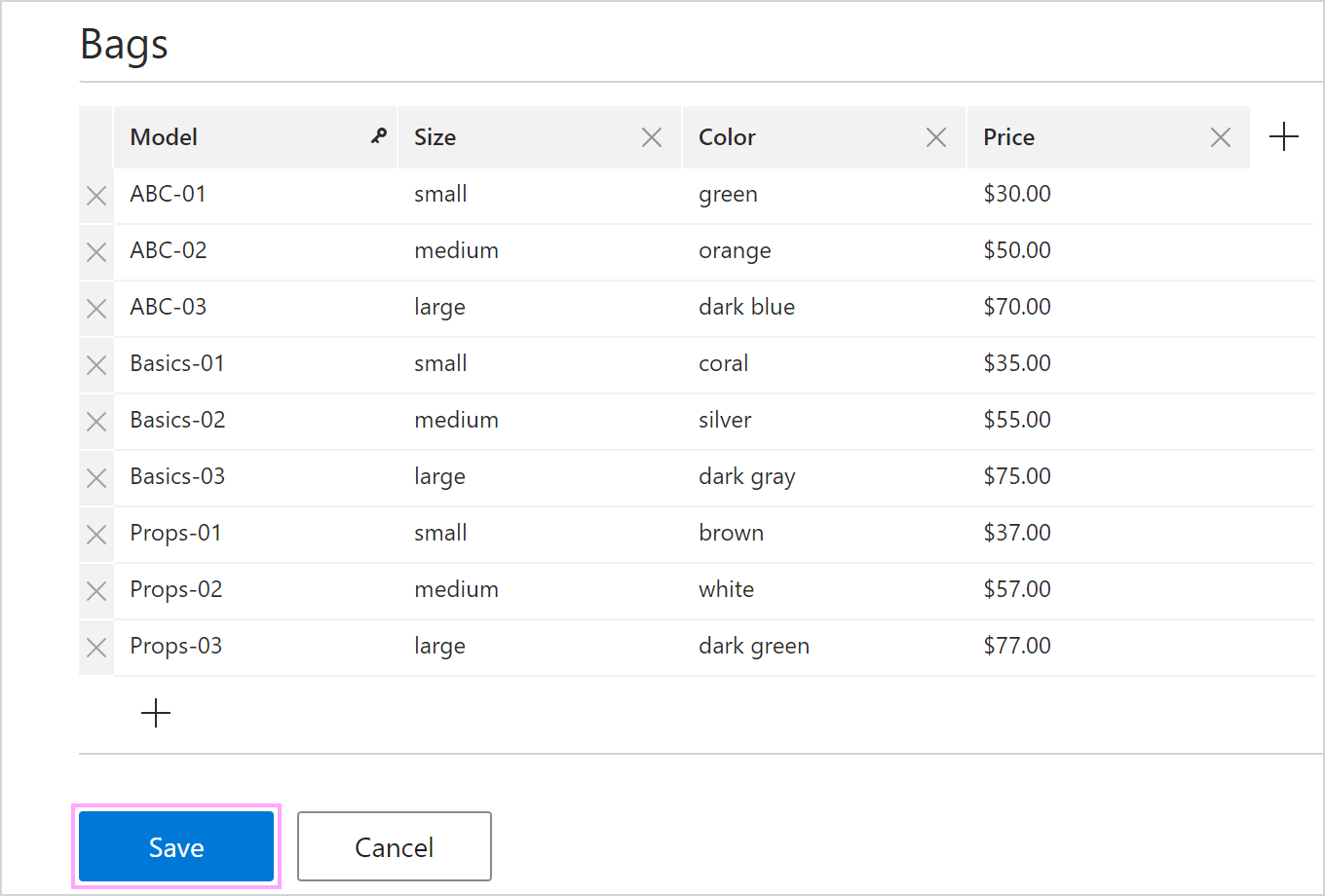
On the Shared Email Templates pane, simple datasets are marked with a special icon.
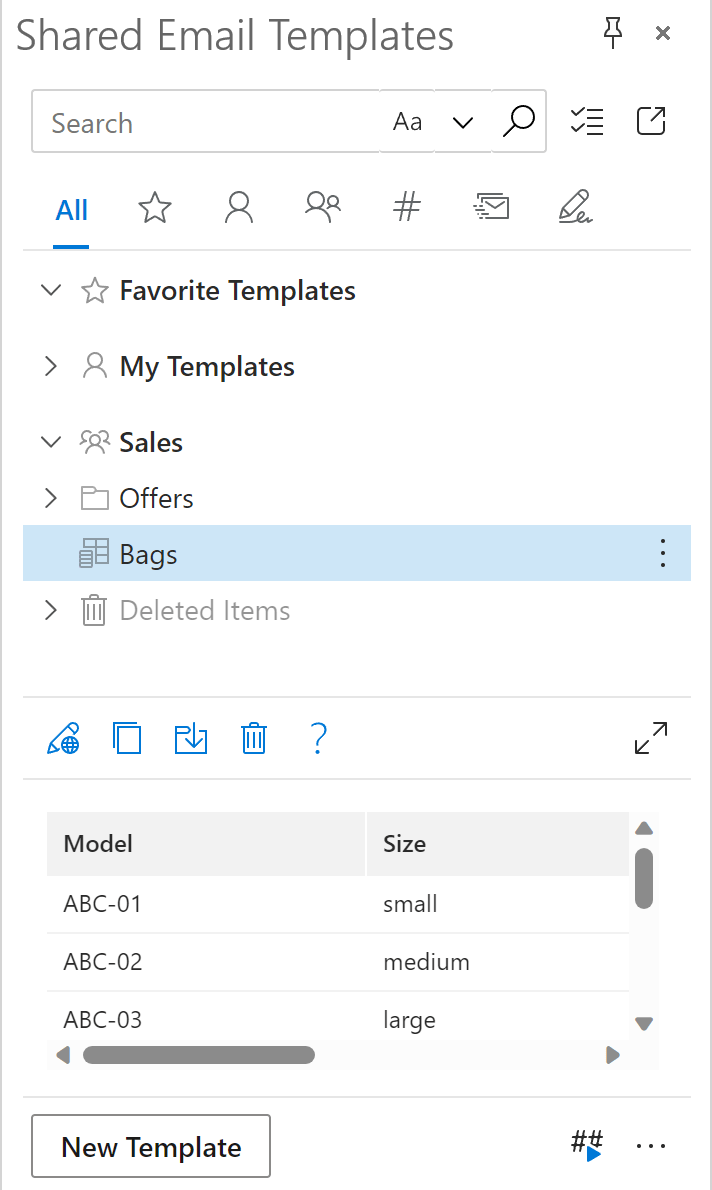
You can import datasets to Shared Email Templates in TXT or CSV formats. If your table is in another format, you can convert it.
Note. If you import a CSV file, the delimiters between cells must be commas. In a TXT file, the delimiter is a tab character.


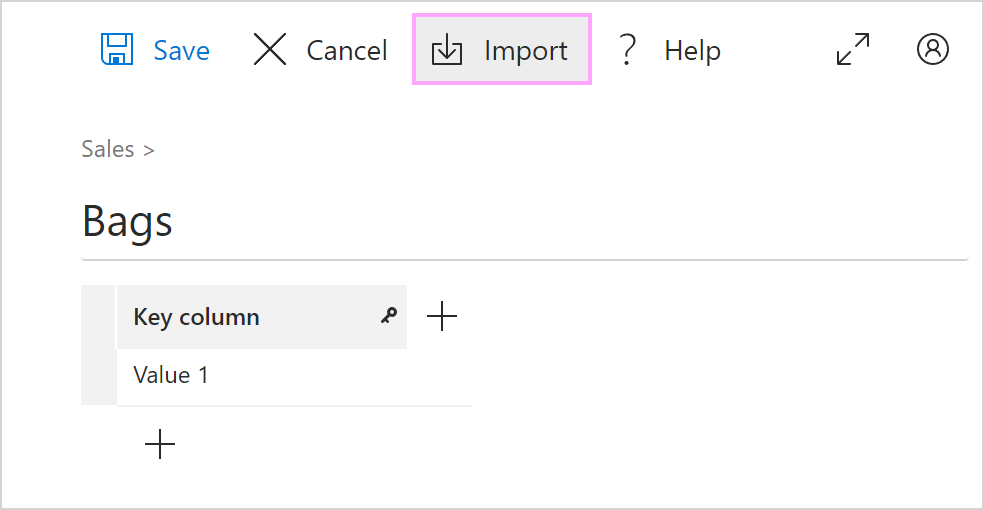
Note. If your original table exceeds the maximum size of a simple dataset in Shared Email Templates (32 rows, 32 columns, and 512 symbols in each cell), your data will be cut.

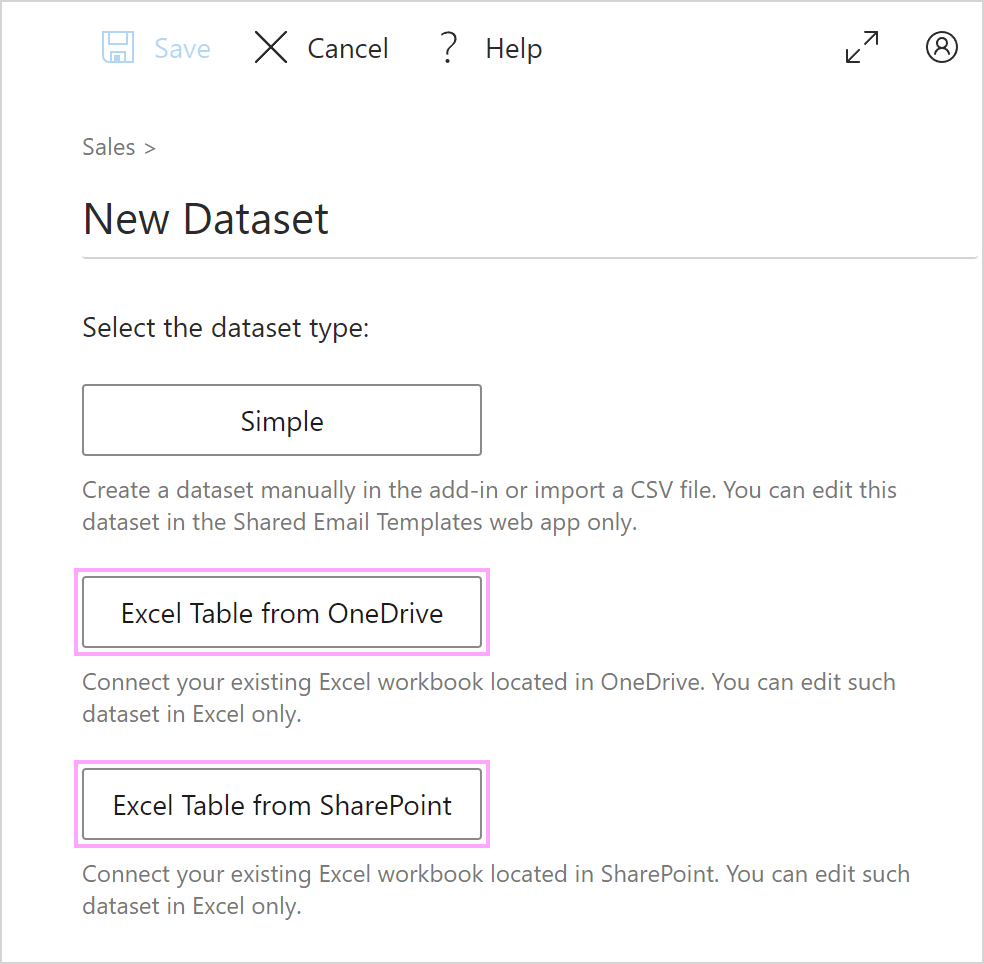
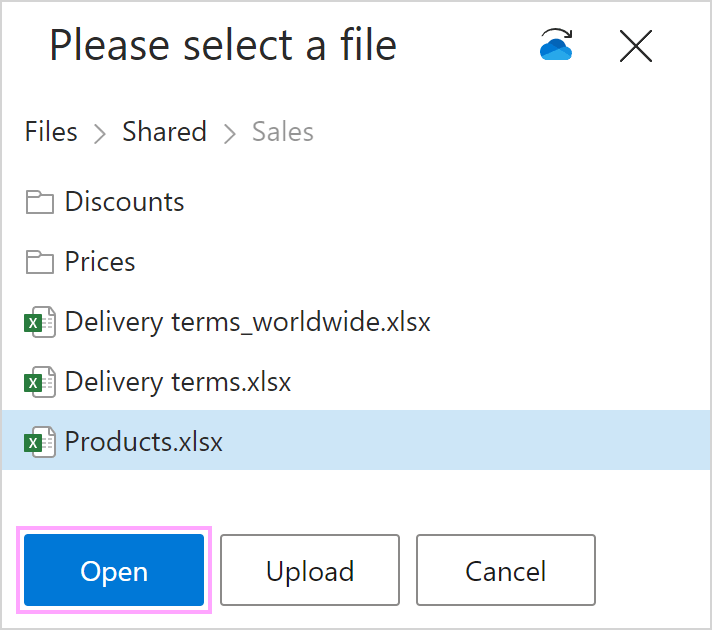
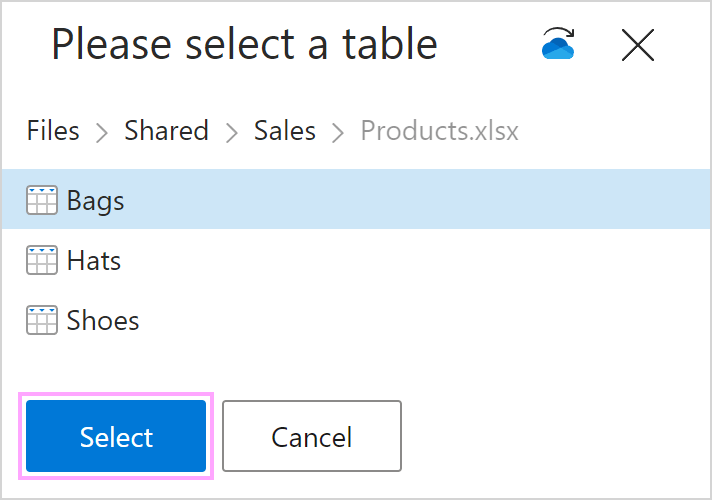
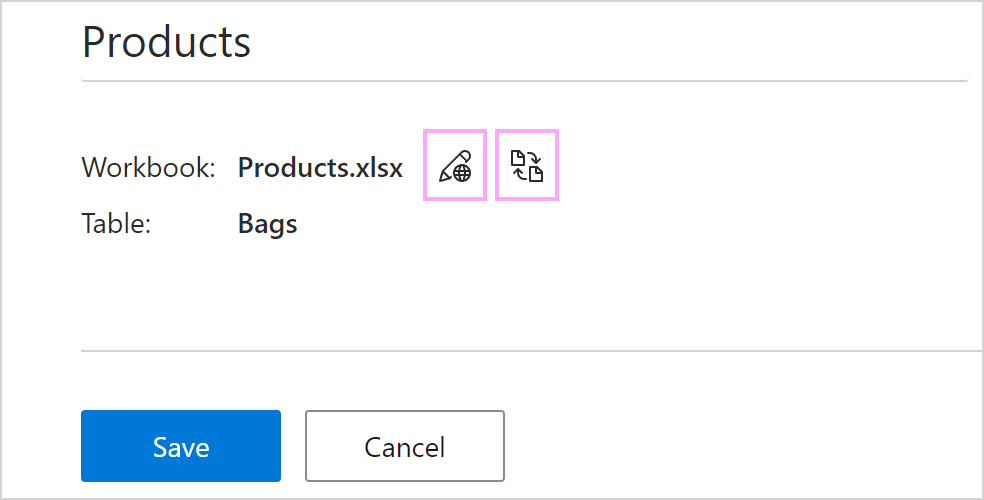
On making sure that the right workbook and the right table are selected, save your dataset.
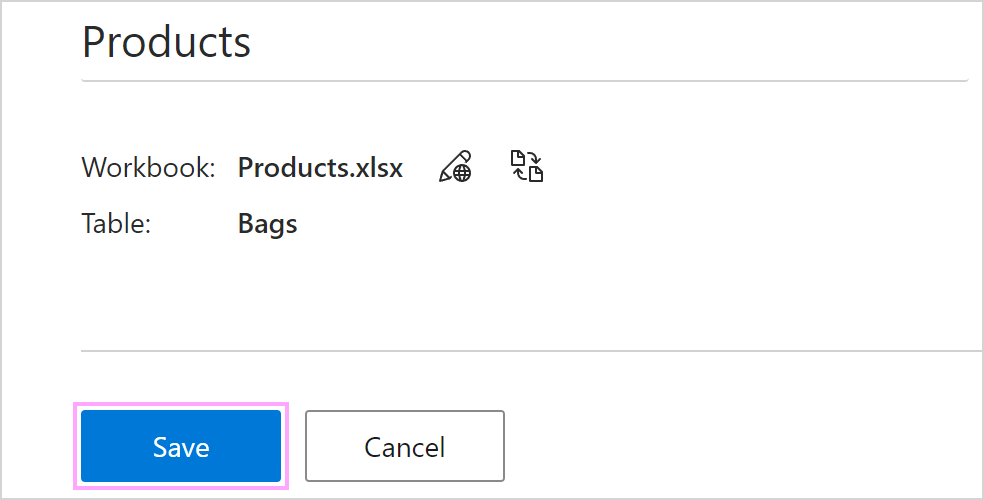
On the Shared Email Templates pane, Excel-based datasets are marked with a special icon.
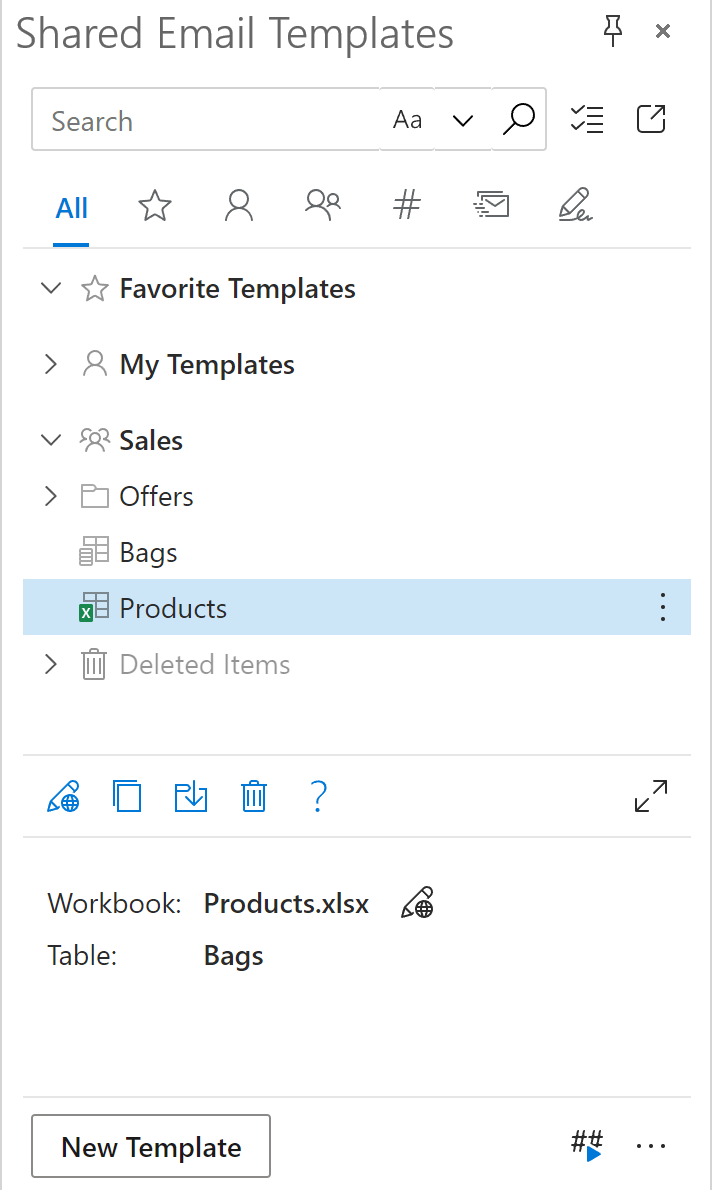
On the Shared Email Templates pane, right-click a dataset that you want to modify, and then select Edit in Browser.
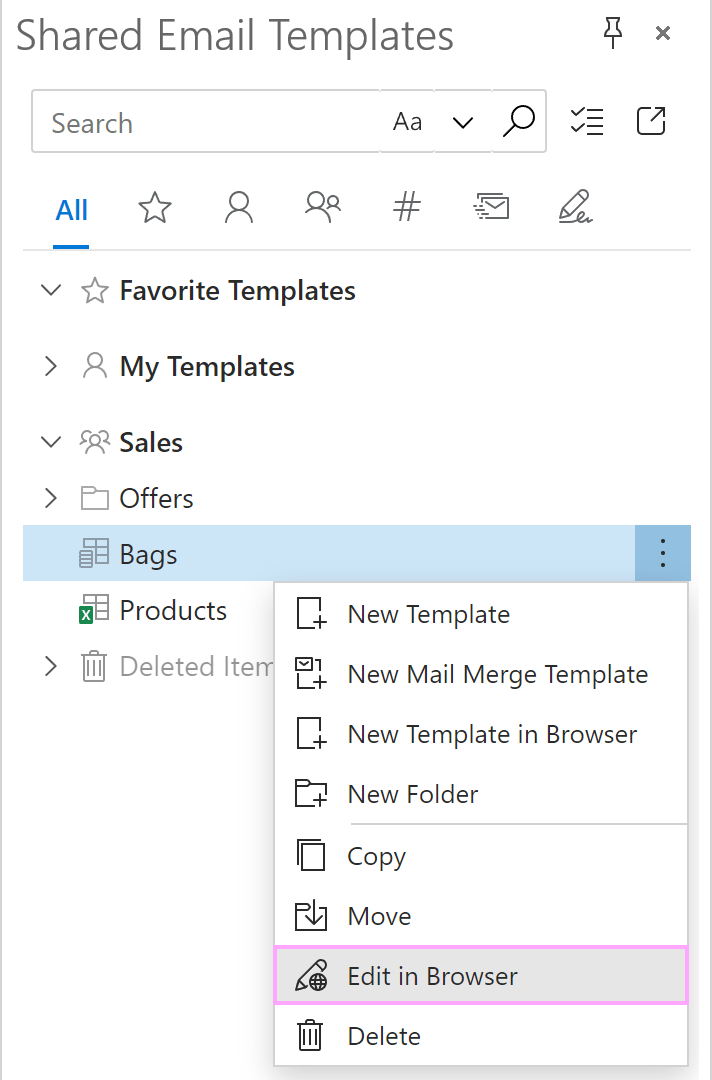
Tip. When editing a simple dataset, you can change the order of columns by dragging and dropping them. The only exception is the key column, it's always the leftmost column and can't be moved.
Responses
Is it possible to connect to a table in Google sheets, as opposed to one in Excel? If not, would you please consider adding this functionality?
We use a google form to collect onboarding information from new clients which feeds into a master client list in Google sheets. If we could connect directly to this file it would improve the functionality ten-fold. (as it currently stands we will have to manually transcribe the new customer info from the google sheet over to the "simple" format data set in Shared Email Templates every time we get a new sign up, which is way too tedious and time consuming)
Hello A W,
Thank you for sharing your idea with us. We will consider adding Google sheets support in the future.
Is it possible to access a value from a dataset without asking the user for the key column value? This would be helpful in constructing templates from a common data source. For example:
~%WhatToEnter[{dataset:"Bags",column:"Bag name",value:"Frida-01"}]
Hi Mark,
Sorry, your idea is not quite clear. Is my understanding correct that you want, say, to have two templates with different data from the same dataset?
Hi Eugene,
I'm specifically referring to including data from a dataset in a template *without asking the user to choose the specific record/key column value*.
In my example above, assume that I am creating a template to specifically showcase the Frida bag. I want to pull in the bag name and colour from the dataset, but I don't need to ask the user which bag as I know, for this template.
I had added a new parameter to the WTE example above, *value*, the intent of which would be to grab the data for that Bag without asking the user to specify which bag. It would be as if the user had answered "Frida-01" to the question that would usually pop up when using a WTE with a dataset.
Mark,
Got it. Thank you for details.
Post a comment
Seen by everyone, do not publish license keys and sensitive personal info!